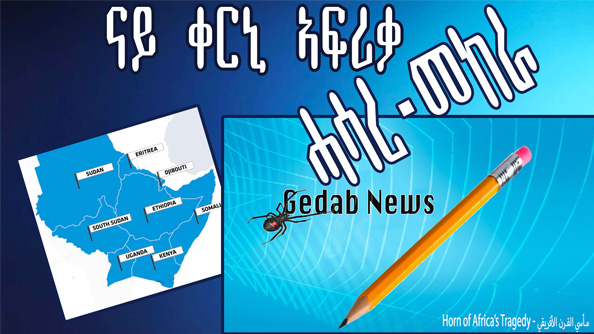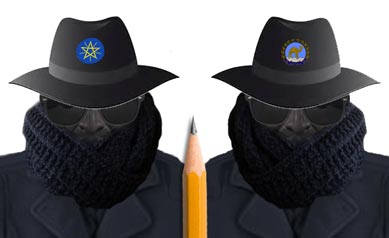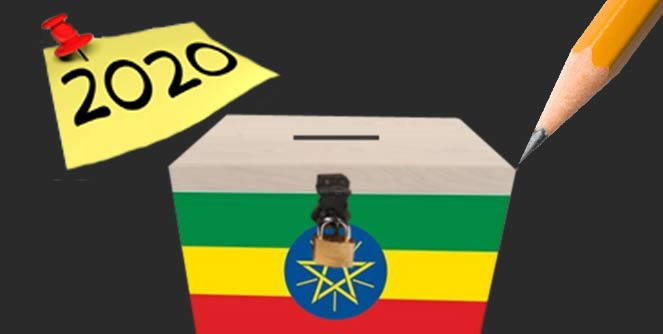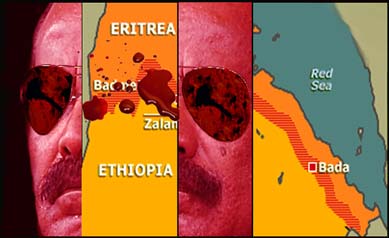Horn of Africa’s Never-Ending Tragedy
On March 2, 2023, Gedab News reported that four people lost their lives when Ethiopia celebrated the 127th 1896 anniversary of the victory of Adwa, a battle fought against the Italian colonial army. However, like many atrocities before the death of four people, including a student and as teacher were killed, no one was held responsible for the death. The new victims are added to the piles of statistics of previous victims. That is the way the helpless and silent people deal with their losses.
In the previous decades, Sudan and Somalia were the worst places in the region as far as the value of human life is concerned. But in the last four years Ethiopia has surpassed the two while Eritrea still holds the championship of total disregard for the freedom and lives of citizens.
It is customary for lives to be wasted for trivial reasons in the region and the violation of rights of the people is a daily practice of the governments. Hardly one-week passes without a loss of lives that are soon forgotten without accountability.
In 1974, the Derg military Junta overthrew emperor Haile Selassie’s regime and heralded the end of the Solomonic dynasty that ruled Ethiopia for eight centuries. The fire breathing Derg followed Vladimir Lenin’s violent Bolshevik revolutionary path. While the deposed emperor’s army equipped with American armaments provided the muscles for the Derg, exiled leftist Ethiopians returned home and provided the intellectual and ideological prowess. Gradually the Derg eliminated the ideologues and help power uncontested. Soon, the Soviet Union replaced the USA as the main supplier of military hardware to the Derg and the bloodbath didn’t stop until the Derg’s downfall in 1991.
The Derg replaced the unjust imperial rule but maintained its characteristics, mainly the centralized unitary state at the expense of social groups who bore the brunt of exclusion and marginalization. In Eritrea, it pursued the iron fist rule and forcefully kept Eritreans in the union against their will and denied them the right of self-determination. It’s total disregard for the serious historical disparities among the over-eighty ethnic and nationality groups was being challenged. The civil strife and political chaos that Ethiopia is now facing is a ramification of the misrule by the Solomonic dynasty.
That led to the Post-Independence Eritrean and Ethiopian Journey
In 1991 the Derg was defeated by a joint Eritrean-Ethiopian rebels and the Ethiopians formed a multi-ethnic coalition government led by EPRDF, the EPLF group of Eritrea banned all other opposition groups from returning home unless they surrender to the victorious EPLF and establishes a single party rule. It was roughly eight years after the defeat of the Derg that the EPRDF and EPLF ignited a border war where tens of thousands were killed and hundreds of thousands of people were displaced. Though that war ended in 2002, the region started yet another war in 2020, that has covered almost all parts of Ethiopia, particularly in the Tigray region where the regional government forces and the federal forces fought in a fierce civil war. To make matters worse, the Eritrean government sent its troops in support of the Federal Ethiopian forces. Finally, in November 2022, a peace deal was signed between the Tigray regional forces and the Ethiopian Federal Forces in Pretoria.
The two sides agreed on 2021 UN mandated body to investigative the atrocities committed against civilians for two years. It was hoped justice would be served by holding the culprits accountable and there would be retribution. The people of the region looked forward to a closure, but that hasn’t happened, and it doesn’t seem the wars has subsided. The Ethiopian government has been dragging its feet on the issue and trying to terminate the inquiry. That has divided regional and Western countries. If rape, detention, and massacres go unpunished, it will not only be a violation of the victims’ rights, but it will prevent social healing and reinforce the usual negligent modus operandi in the region. But if the inquiry fails, it is not only a bad precedent, it’s a continuation of the usual African government’s disregard for the population of the region.
According to some reports, the Ethiopian government thinks the investigation is political. But the UN is not a court of law but a political entity, just like any government and the issue is not about anything else but legal. The UN cannot conduct such an inquiry outside the UN charters and protocols.
Meanwhile, an enhanced interactive dialogue on human rights in Eritrea, was held on Monday 6 March 2023 where Nada Al-Nashif, the deputy high commissioner of the UN Human Rights said “The human rights situation in Eritrea remains dire against the backdrop of “complete” impunity for State security and defense forces. Nada Al-Nashif warned of the serious violations of people’s basic freedoms in Eritrea that have not shown “no sign of improvement”. Ms Nada Al-Nashif added, the Eritrean Force’s withdrawal from Northern Ethiopia “remains very slow and largely incomplete”.
The UN human rights office leveled serious accusations against the Eritrean government for extrajudicial killings and executions. Eritrea has denied the accusations and that has “allowed perpetrators in the EDF to act with impunity.”
Equally concerning is the continued mobilization of old Eritreans to fight, a situation that is making thousands of Eritreans to flee the country. On December 22, 2023, Gedab News reported about door-to-door “Searches, Arrests, and Tension in Eritrea.”
Equally concerning the case of journalists many of whom were jailed two-decades and under-age children who are aging behind bars. One of them is the American-Eritrean Ciham Ali Abdu, who was arrested in 2013 after her father Ali Abdu, the former Eritrean minister of information minister abandoned the Isaias Afwerki regime.
That is how the governments of the Horn of Africa govern the region with impunity. They are not accountable to the governed but always using the West as a scapegoat. Sometimes, the vitriol against the West is understandable, but it’s mainly a deflection of guilt and an attempt to avoid accountability.
the leaders of the region are not concerned with progress. If they were, they wouldn’t build and develop their country for decades only to destroy what they developed in a fortnight.
The reports of the inquiry commission have a huge implication for the past, the present, and the future of the region. It would be a tragic mistake if history is repeated in the Horn of Africa and bloodshed continues to satiate the undefinable and insatiable appetites of the leaders, most of whom are unelected or overstay their mandate.
The investigators and other observers have enough reason to conclude the atrocities did happen. But the Ethiopian government is dragging its feet trying to prevent the inquires. And as usual, the African countries that claim the inquiry is politicized are trying to hinder the probe for a much clearer political reason: the Russia Ukraine conflict that includes politicking with China.
In 2018 , Isaias Afwerki and Abiy Ahmed signed a peace agreement that was hailed as an agreement that ended a two-decade long “no-peace no-war” period between Eritrea. No details of the agreement that was signed in Asmara, Addis Ababa, Abu-Dhabi, and Jeddah is still not clear. But that agreement produced an era that obliterated any semblance of peace.
The inquiry and bringing the culprits to a court could be the only vindication. It might also awaken the whole region and shake it out of its complacency and slumber. But if current developments are indicative, the region will not awaken even with worse cataclysm. The apathy that prevails in the Horn of Africa is killing it.





Awate Forum